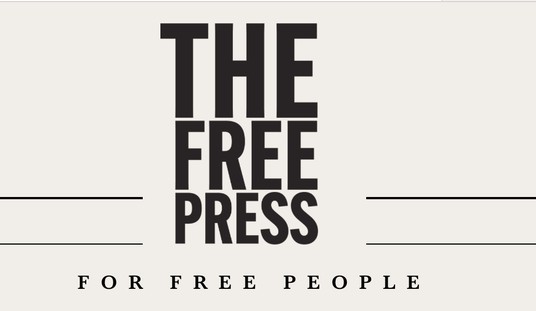The Obama administration did the worst thing it could have done in the run-up to Equal Pay Day— a day on which it was the president’s fondest desire to beat the American public about the head and neck with dumbed down demagoguery. The administration admitted nuance. And, once the demon nuance has entered the bloodstream, the issue of equal pay begins to stagger.
It started with White House Press Secretary Jay Carney, who is anaphylactically allergic to nuance unless reporters start using the administration’s own metric for workplace fairness on the White House. When asked about a recent study showing the “women working at Obama’s White House earn 12% less than men on average,” or 88 cents on the dollar, Carney offered this:
“What I can tell you is that we have, as an institution here, have aggressively addressed this challenge, and obviously, though, at the 88 cents that you cite, that is not a hundred, but it is better than the national average,” Carney said. “And when it comes to the bottom line that women who do the same work as men have to be paid the same, there is no question that that is happening here at the White House at every level.”
The ratio when it comes to White House men and women in the same job is actually 91:100, but let’s give him that. If Carney contends it’s unfair to judge the White House’s commitment to gender equality by averaging salaries of male and female workers in a range of different positions and deeming all the difference between them a result of discrimination, he’s right. It is unfair. But the president trots out this unfair statistic whenever he needs to prove that he’s going to fix this problem with a piece of federal legislation or a wave of his regulatory wand.
The statistic is so much bunk, as economist Betsey Stevenson acknowledged when pressed about it. First Stevenson, a member of Obama’s Council of Economic Advisers had this to say:
“They’re stuck at 77 cents on the dollar, and that gender wage gap is seen very persistently across the income distribution, within occupations, across occupations, and we see it when men and women are working side by side doing identical work.”
[A]s soon as Stevenson was actually questioned about the statistic by McClatchy reporter Lindsay Wise, the White House adviser crumbled, admitting her earlier comments were inaccurate.
“If I said 77 cents was equal pay for equal work, then I completely misspoke,” Stevenson said. “So let me just apologize and say that I certainly wouldn’t have meant to say that…
“Seventy-seven cents captures the annual earnings of full-time, full-year women divided by the annual earnings of full-time, full-year men,” Stevenson clarified. “There are a lot of things that go into that 77-cents figure, there are a lot of things that contribute and no one’s trying to say that it’s all about discrimination, but I don’t think there’s a better figure.”
The problem, of course, is that President Obama’s entire pitch for every iteration of his plan to save women’s salaries, each of which is an admission the last didn’t work, is that discrimination is the root.
Yes, there are differences in men’s and women’s salaries sometimes. Yes, discrimination exists. But much of the pay gap comes from the fact that women make different employment choices. They take less dangerous jobs with more flexible hours, they leave the work force or cut back when having and raising children. To acknowledge this is not “blaming the victim.” For many women, these choices are edifying ones made with open eyes.
[A]mong all mothers with children under 18, just a quarter say they would choose full-time work if money were no object and they were free to do whatever they wanted, according to a recent New York Times/CBS News poll.
But Obama’s exercise this week was in creating a useful fictional workplace wherein women can exercise no choice and can exert no agency (Liz Mair wonders if that’s what the White House’s workplace Julias’ wardrobes are about). If they could do either of those things, they might realize how little sense it makes to outsource their problem solving to the federal government, which even if you have perfect faith in its intentions, is a clumsy animal for getting things done. As illustrated by the biannual federal bill Obama announces to solve the exact same problem.
One place women really can take more control is in asking for more money.
Texas GOP chairwoman, Beth Cubriel, made this point two weeks ago and was lambasted by liberals and national media. She was insensitive, according to them. She was sexist, a symbol of the GOP’s women problem, alleged NBC’s Chuck Todd.
She was also right. Here’s an economist arguing the exact same point public radio’s “Freakonomics Radio.”
“There this other more thing which I think I should mention, which is that often women are underpaid and they’re underpaid because they simply don’t ask. They don’t ask for the raise they should get. There’s really compelling research on this, that women tend to not negotiate as hard, tend to be less likely to ask for a raise. So, if you could be earning more doing the exact same job you’re doing, I think you’d be better off, so you should go out there and ask for that raise.”
That economist’s name: Betsey Stevenson, member of Obama’s Council of Economic Advisors last seen hawking the administration’s Equal Pay Day push. The notion is uncontroversial as long as it’s not a conservative uttering it, at which point it becomes politically useful to deem it insensitive insanity.
NPR reported on a study with this conclusion in 2011:
There are many reasons why, despite widespread gains in the workplace, women still earn on average about 78 cents to a man’s dollar. But the failure to negotiate higher pay is crucial. Research shows men are four times more likely than women to ask for a salary raise, and economist of Carnegie Mellon University says this has a snowball effect. Even a small pay boost will mean bigger annual raises and possibly bigger bonuses and it will carry over to a new employer, who is almost certain to ask: What was your last salary?
“I tell my graduate students that by not negotiating their job at the beginning of their career, they’re leaving anywhere between $1 million and $1.5 million on the table in lost earnings over their lifetime,” Babcock says.
The Harvard Business Review published this in 2003. Linda Babcock is the author of at least two books on this subject, “Women Don’t Ask” and “Ask for It.”
Women often don’t get what they want and deserve because they don’t ask for it. In three separate studies, we found that men are more likely than women to negotiate for what they want. This can be costly for companies—and it requires management intervention.
The first study found that the starting salaries of male MBAs who had recently graduated from Carnegie Mellon were 7.6%, or almost $4,000, higher on average than those of female MBAs from the same program. That’s because most of the women had simply accepted the employer’s initial salary offer; in fact, only 7% had attempted to negotiate. But 57% of their male counterparts—or eight times as many men as women—had asked for more.
Another study tested this gender difference in the lab. Subjects were told that they would be observed playing a word game and that they would be paid between $3 and $10 for playing. After each subject completed the task, an experimenter thanked the participant and said, “Here’s $3. Is $3 OK?” For the men, it was not OK, and they said so. Their requests for more money exceeded the women’s by nine to one.
The largest of the three studies surveyed several hundred people over the Internet, asking respondents about the most recent negotiations they’d attempted or initiated and when they expected to negotiate next. The study showed that men place themselves in negotiation situations more often than women do and regard more of their interactions as potential negotiations. (See the exhibit “Can We Talk?”)
Sheryl Sandberg famously pushed women to start negotiating as part of her “Lean In” movement, with anecdotally good results.
And, if all that’s not enough, what about NPR’s Morning Edition the day before Equal Pay Day? Former bank executive Sallie Krawcheck, one of few women CEOs in Wall Street history, said she advises women, “there is no HR fairy godmother.”
What I’ve found over time is that when it would come to bonus time or raise time, I would hear from the gentlemen, “I want to make X.” I don’t think I ever heard from a woman who worked for me, “I want to make X.” Ever. And research shows, men ask and women don’t. … Say we’ve got two employees, Joe and Joanne. They’re both set to make $5 in bonus. Joe comes into my office and says, “Hey, Sallie, I’ve had a great year. I’d like to make $10 this year.”
After Joe leaves, I call the head of HR, and we sort of say, “Can you believe this? Joe wants to make $10, he’s in for $5, ha ha ha.” But we don’t want to lose him. So we put him in for $7. And that means Joanne isn’t going to get the $5 we had planned. She’s going to get $3. Because the bonus pool doesn’t go up. She sees her bonus actually reduced.
For many people, negotiating is not fun. It’s scary, it’s uncomfortable. And yes, it might be fraught with more peril for an assertive woman than an assertive man, depending on one’s boss. But getting a negotiating coach, daring to ask, being frank about what your time and talents are worth— these are skills we should encourage women to hone. I do every time I speak with female interns. The rewards aren’t just financial. When the White House leaves out all nuance in discussing equal pay to pitch yet another tired legislative solution, it leaves out the best part— the part where women have power and can learn to become more powerful.








Join the conversation as a VIP Member